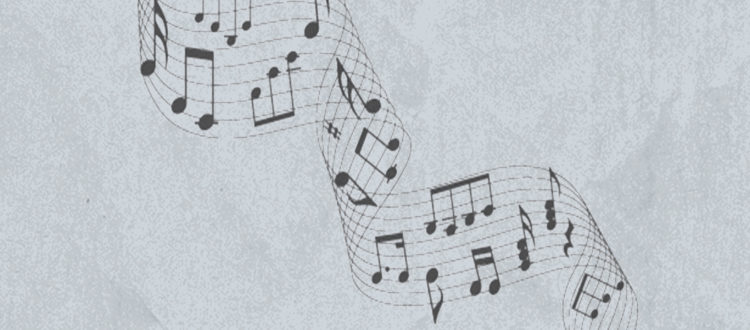Singing Down the Blessing of God
The governor of California’s recent restrictions against singing in worship services reminded me of something about which I’ve wanted to write for years now––namely, the way in which the songs of praise that believers offer to God in worship are directly associated with His future victory over His enemies and the redemption of His people. Too often, we go through the motion of singing to God while failing to give due consideration to the way in which God responds to His people’s songs of praise and adoration.
Throughout Scripture, the triune God calls His people to sing loud praises to Him for His goodness, grace, mercy, blessing, righteousness, justice, and redemption (e.g., Psalm 18:49; 21:13; 27:6; 30:4, 12; 47:6, 7; 51:14; 57:7, 9; 59:16, 17; 61:8; 66:2, 4; 67:4). The joy that fills the hearts of believers on account of all that God is and all that He has done for us in Christ overflows in songs of praise and thanksgiving to God. By singing His praises, we remember the great and marvelous works of the Lord. The Psalms are full of praises in which God’s people not only singing about God’s glorious attributes–they also praise Him for the mighty acts of redemption with which He delivers them. In this sense, we can say that the songs we sing to God look back over the works of God. There is another sense, however, in which Scripture teaches us to sing with anticipation of the works of deliverance and redemption that God is yet to accomplish. The praises we sing to Him with hearts full of grace at present may redound to His glory in such a way that God again does great and marvelous acts among His people. Consider the following examples from Scripture:
In Psalm 40, David recounted the way in which God delivered him from his enemies. He then says,
“He put a new song in my mouth, a song of praise to our God. Many will see and fear, and put their trust in the LORD” (Psalm 40:3)
Here, David is teaching us that God uses our songs of praise evangelistically. David understood that when unbelievers hear believers singing the praises of God for His redemption some will receive it as a witness to the truth of God in the gospel.
Again, in Psalm 138, David indicates that God uses his songs of praise for the conversion of kings. He wrote,
“I give you thanks, O Lord, with my whole heart; before the gods I sing your praise…All the kings of the earth shall give you thanks, O Lord, for they have heard the words of your mouth, and they shall sing of the ways of the Lord, for great is the glory of the Lord” (Psalm 138:1; 4–5).
Here “the gods” is almost certainly shorthand for “the kings” David speaks of in verse 4. Notice also the reciprocal nature of the result of David’s praises. The kings of the earth will be converted; and, subsequently, they will sing praises to God for His great glory.
There are also examples in Scripture in which God provides deliverance for His people when they sing His praises. In 2 Chronicles 20 the Moabites, Ammonites, and Meunites came up against Jehoshaphat, king of Judah. Jehosaphat gathered the people and called on the Lord in prayer–recounting to the Lord the previous victories He had given His people and asking Him to deliver them from their enemies (2 Chronicles 20:5–12). The Lord sent them a prophet who told the people, “Do not be afraid and do not be dismayed at this great horde, for the battle is not yours but God’s” (v. 15). When they went forward into battle, Jehosaphat charged them with the following words,
“Hear me, Judah and inhabitants ofJerusalem! Believe in the LORD your God, and you will be established; believe his prophets, and you will succeed.”
Then “when he had taken counsel with the people, he appointed those who were to sing to the LORD and praise him in holy attire, as they went before the army, and say,
“Give thanks to the LORD, for his steadfast love endures forever.”
“…when they began to sing and praise, the LORD sean ambush against the men of Ammon, Moab, and Mount Seir, who had come against Judah, so that they were routed.” (2 Chron. 20:20–22).
In the book of Acts, there is the well known account of the Lord delivering Paul and Silas when they were singing hymns in prison. Their praises precipitated the earthquake by which they were enabled to walk out of the prison cell. However, it also led to the salvation of the Philippians jailor and his family (Acts 16:25–34). I have no doubt that Paul’s songs of praise to God also played a role in his witness to the palace guards who watched over him in prison (Philippians 1:12–14).
There is a clear pattern in Scripture of the way in which God uses the praises of His people for their future deliverances and the evangelization of the nations. May we enter into His gates with thanksgiving and His courts with praise, knowing that our God is enthroned on the praises of His people. We need His deliverance and the watching nations need His salvation.




As Jesus is “greater than Moses” (Hebrews 3:3), the “Song of Moses” (Deuteronomy 32:1-43) is the “type” foreshadowing the “antitype” – the “Song of the Lamb” (Revelation 15:3). Both are victory songs of God’s delivery and salvation of His people from Satan’s “bondage”.
Pingback : Songs of Praise Sing Down the Blessing of God
Pingback : Feeding on Christ Singing Down the Blessing of God – Feeding on Christ – Reformed faith salsa style